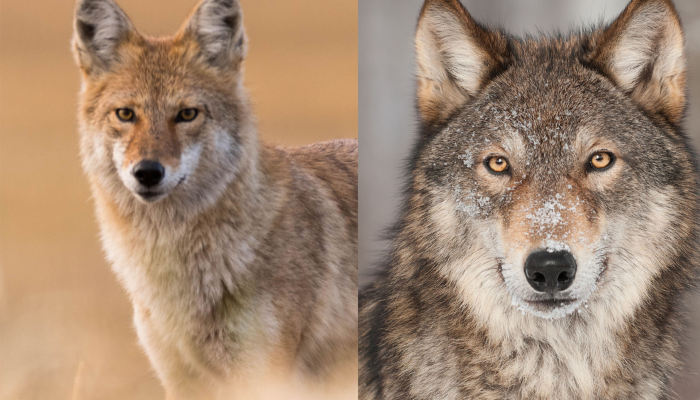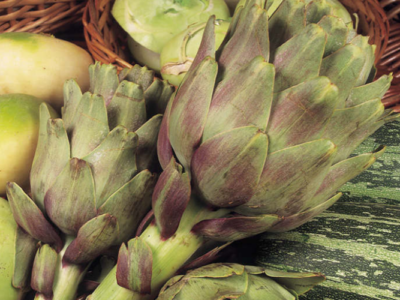The question of whether a wolf can eat a coyote is one that has been asked for centuries. Wolves and coyotes are both predators and they both share a habitat in many parts of the world. Wolves are significantly larger than coyotes, and their strength and speed make them formidable hunters. Coyotes, on the other hand, are smaller and more agile. So, can a wolf eat a coyote?
What is a Wolf?
A wolf is a large canine that is found in many parts of the world, including North America, Europe, and Asia. Wolves are known for being powerful hunters, with their keen sense of smell and sharp hearing allowing them to locate and capture their prey.
Wolves are social animals, living in packs of up to thirty members that help to protect and care for one another. They are often seen as symbols of strength and courage and have been featured in many stories, myths, and even films.
Wolves are omnivores, meaning they eat both plants and animals, though their diet is typically composed of large mammals like deer and wild boar. So, does a wolf eat a coyote? It is possible, but uncommon.
Wolves and coyotes are both carnivores, but they have different hunting strategies and habitats, so they typically don’t compete for the same food sources.
What is a Coyote?
A coyote is a medium-sized canine found throughout North and Central America. They are closely related to wolves, dogs, and foxes, and have similar characteristics such as pointed ears, long snouts, and bushy tails.
Coyotes are well-adapted to living in a variety of habitats, from grasslands to forests and deserts. They are highly intelligent and social animals and are known for their loud yipping vocalizations.
While they primarily hunt small prey such as rodents, rabbits, and birds, they are also opportunistic hunters and scavengers and will take advantage of larger prey when the opportunity arises. This includes other predators such as the wolf, which can make up a significant portion of a coyote’s diet.
Is it Natural for a Wolf to Eat a Coyote?
Yes, it is natural for a wolf to eat a coyote. Wolves are natural predators and, like most predators, they will eat whatever prey is available. Coyotes are a common prey item for wolves, and they are often seen as an easy source of food.
Coyotes are smaller than wolves, and so they can be taken down more easily and with less risk. Wolves are social animals and live in packs, which can give them an advantage when hunting coyotes. The pack can corner the coyote, making it easier to take down.
Additionally, wolves have an acute sense of smell, which helps them locate coyote dens and hunt them more efficiently. Coyotes are also a source of nutrition for wolves, providing them with protein and fat.
Nutritional Value of a Coyote
When it comes to the nutritional value of a coyote, it seems that the answer to the question “Does a wolf eat a coyote?” is a definite “Yes”. Coyotes are a common prey item for wolves, and their meat is an excellent source of protein and fat.
Coyotes are also a good source of iron and calcium. In addition to these essential nutrients, a coyote carcass may contain a variety of other vitamins and minerals that can benefit a wolf’s health.
The fur, hide, and organs of the coyote also provide a wolf with additional energy and nutrients. In some cases, coyotes can also provide a wolf with a snack and a source of entertainment. Wolves will often play with the carcass of a coyote, which can be a fun and rewarding experience for the wolves.
Interactions between Wolves and Coyotes
The interactions between wolves and coyotes are complicated and often misunderstood. In some areas, coyotes are seen as a nuisance animal, while wolves are respected for their strength and beauty.
In other areas, both species are considered to be apex predators, although coyotes tend to be more common than wolves. Coyotes and wolves often compete for the same food sources, and in some cases, wolves will prey on coyotes.
In other situations, coyotes and wolves may form a symbiotic relationship, in which they work together to hunt or scavenge for food. While it is possible for a wolf to eat a coyote, it is not common and is usually only seen in extreme cases of competition or as a last resort when food is scarce.
Consequences of Wolves Eating Coyotes
The consequences of wolves eating coyotes can be far-reaching and have a significant impact on the local ecosystem. Wolves are apex predators and their presence can affect the balance of other predators, such as coyotes.
When wolves begin to hunt and consume coyotes, their populations can become depleted, resulting in a decrease in prey for the wolves. This can lead to an increase in small mammals such as rodents and rabbits, which can, in turn, cause damage to local vegetation and disrupt the delicate balance of the ecosystem.
Furthermore, coyotes play an important role in controlling smaller predators such as foxes, raccoons, and skunks, so without their presence, these animals can become overpopulated and cause significant damage to the local environment. The presence of wolves can also cause a decrease in the number of deer in the area, as they compete for the same prey.
This can have a cascading effect, as deer populations often provide food for other predators and can affect the local vegetation.
Conclusion
The answer to the question of whether a wolf eats a coyote is it depends. While wolves are known to have an appetite for small mammals, including coyotes, there have been no confirmed reports of wolves actually attacking and killing coyotes.
On the other hand, coyotes also feed on smaller animals such as rabbits, rodents, and birds, which makes them potential prey for wolves. Ultimately, the outcome of an encounter between a wolf and a coyote largely depends on the size and strength of the predator and the prey.











Comments